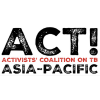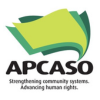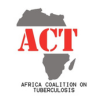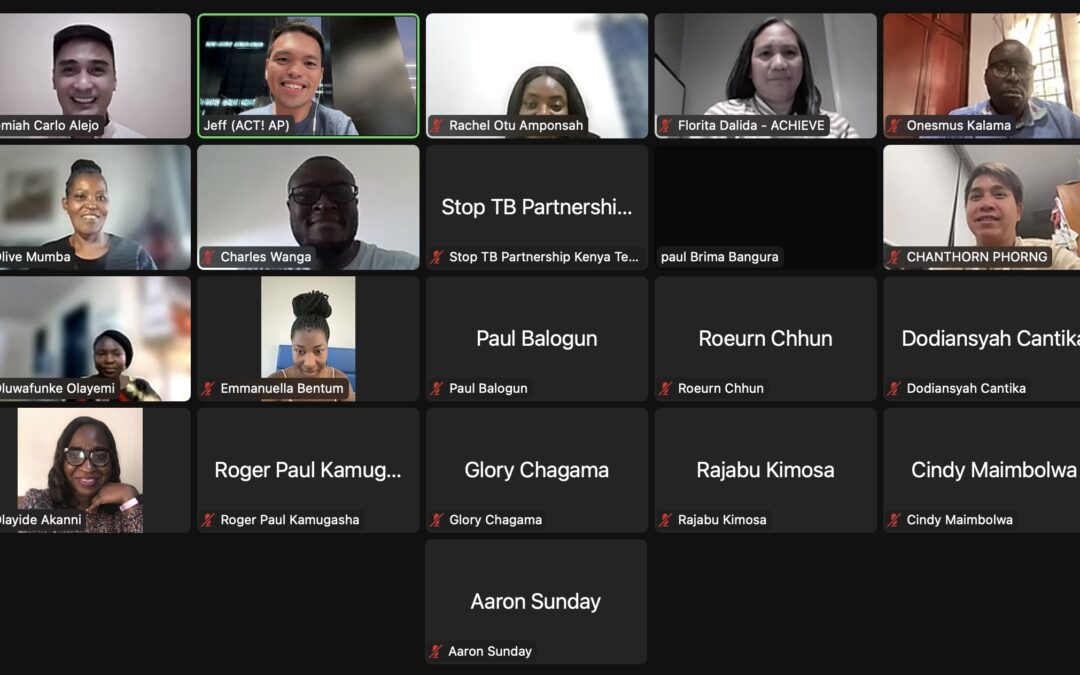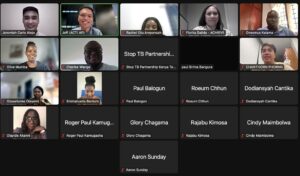
The fourth session of the CELG webinar series was held last January 18, 2024. The session served as a platform to share updates and lessons from the organizations on the initial actions they have taken to strengthen the capacities of identified key vulnerable groups and last mile populations to engage and participate in pandemic risk management processes.
Jeremiah Alejo provided a recapitulation of described KVP and LMP engagement strengthening strategies for strengthening and pandemic-proofing health systems.
To provide an overview of the status of the CELG assessment and engagement plan implementation by country partners, regional reports were presented by Jeffry Acaba of APCASO and Rachel Otu-Amponsah for ACT Africa. Country-level implementation of activities range from developing initial engagement plans to initial implementation of engagement plans.
| Country | Identified LMPs | Status of LMP Engagement Activities | Remarks |
| Cambodia | internal migrants, particularly migrant construction workers | Plan development ongoing | |
| Indonesia | current and former persons deprived of liberty | Initial implementation ongoing | Focus on three provinces |
| Philippines | tricycle drivers | Initial implementation ongoing | Focus on one city (as initial model for scalable engagement process) |
| Nigeria | internally displaced persons and nomads | Provisional engagement plan developed | Focused on 3 states |
| Cameroon | internally displaced persons | Final plan for initial implementation | Focused on 3 regions |
| Mozambique | miners and ex-miners | Plan development ongoing | Focus on Majacaze, Gaza Province |
| Sierra Leone | persons with disabilities | Plan development ongoing | |
| Kenya | people with disability | Plan development ongoing | Work with National Council of People Living with Disability with engagement with the national government |
To provide specific examples of engagement plan implementation, two countries were assigned to present: Florita Dalida of ACHIEVE, Inc. presented for the Philippines and Charles Wanga STOP TB Partnership from Kenya.
A key finding from the studies from the regional and country reports showed limited awareness and health-seeking behaviors among KVPs and LMPs about health issues affecting them and about opportunities for them to engage and participate in healthcare planning for issues affecting them, particularly TB and pandemics. In the Philippines, the limited prior engagement of LMPs in health-related matters caused initial hesitancy and resistance to engage in the project. Charles Wanga highlighted how disabilities complicate communication and education strategies to address vulnerabilities.
In the Asia-Pacific, Jeffry Acaba remarked that among the countries preparing their pandemic preparedness plans, governments will be utilizing prior existing CSO engagement structures and bodies.
There was also a general recognition of the vulnerable status of the LMPs and its relationships with poor social and structural determinants of health, such as poor employment and working conditions, lack of permanent dwellings, war and conflict, and social stigma and discrimination among others.
Consequently, a strategy emphasized among the various countries’ plans is addressing structural issues increasing the vulnerabilities of LMPs. These include advocating for strengthening access to communication and education and providing incentives to addressing stigma and promoting community participation.
Highlighted also was strengthening the delivery of basic health services to address interrelationships among illnesses and behavioral and environmental vulnerabilities of LMPs. Among specific actions to be prioritized are increased case-finding efforts particularly among the LMPs, providing psychosocial care especially for those problems experiencing integrating with society, strengthening referral systems, increasing accessibility of health information and services for PWDs, and utilizing information technology for quality improvement of services.
These were in addition to the already previously recommended strategies from the prior sessions:
- Awareness-raising activities among KVPs and LMPs on their increased vulnerabilities to health conditions, i.e., Tuberculosis and the effects of pandemics;
- Helping KVPs and LMPs to organize themselves to facilitate integration into existing CSO-engagement structures, particularly those of the government, as well as to be platforms for health service provision including peer support and information sharing;
- Capacitating both community-led organizations, particularly those of KVPs and LMPs, and civil society organizations supporting KVPs and LMPs, through pandemic literacy and pandemic governance integration in organizational processes;
- Facilitating community-led mobilization and advocacy for increasing engagement and participation platforms for KVPs and LMPs in health development planning including pandemic prevention, preparedness and response; and
- Ensuring representation and participation in health and pandemic governance structures and platforms, particularly those related to the development of national pandemic prevention, preparedness and response strategic plans.
Several points were raised during the discussion.
The first one was regarding how to improve the capacity of LMPs to engage in pandemic risk management when the country findings point to a baseline limited knowledge and engagement on more basic health and vulnerability issues, especially TB. There was a shared recognition among the participants that basic health services need to be improved, through advocacy and opening up feedback/communication mechanisms with service providers along with implementing basic strategies in social mobilization for LMPs with TB as the entry point, then eventually integrating pandemic risk management to their capacities.
Another point raised was what efforts from CSOs and funding agencies to open up spaces and platforms for participation, especially within various levels of governments, given the limited capacities of LMPs and KVPs in engagement. Based on the initial plans presented, several participating organizations have begun working with government structures to initiate engagement with their identified LMPs.
Jeremiah Alejo then provided a synthesis of the webinar series emphasizing that last mile populations are the most vulnerable group to certain conditions because of their deprivations and very limited access to basic services; and, as such, should be the benchmark of planning how services are delivered. He emphasized that designing health services need the engagement last mile populations to ensure that nobody gets left behind, especially in the light of pandemics where whole systems are affected by the vulnerabilities of the most disenfranchised sectors of society.
Given that many of the participating organizations are still in the process of finalizing their engagement plans, Olive Mumba announced that the CELG will probably be extended until 2025 to fully implement the projects and identify important lessons from the initiatives.

